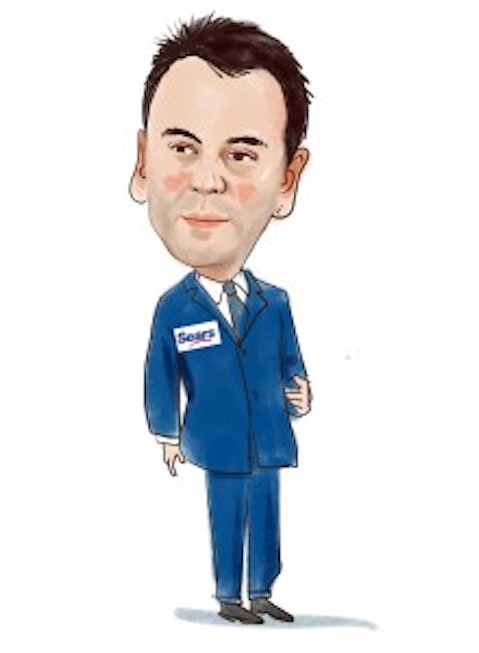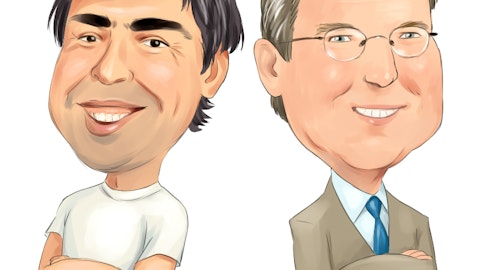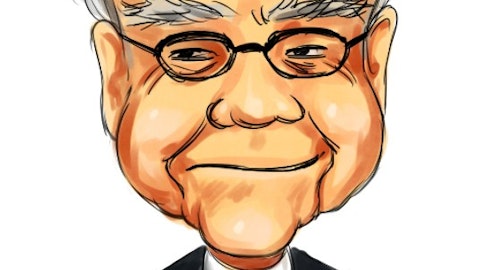In a detailed profile, Bloomberg Businessweek argues that much of Sears Holdings Corp (NASDAQ:SHLD)’ recent troubles can be attributed to the mismanagement of the company. Specifically, Bloomberg paints a picture of Lampert as an Ayn Randian-obsessed free market fanatic, pushing overly aggressive, internal dog-eat-dog competition.

Microsoft’s stack ranking
The profile of Lampert is fascinating, but it reeks of hindsight bias. If Sears Holdings Corp (NASDAQ:SHLD) was riding high today, the article likely would not have been written.
It’s remarkably similar to Vanity Fair’s August 2012 piece on Microsoft Corporation (NASDAQ:MSFT). In that article, CEO Steve Ballmer was criticized for missing numerous technological trends over the course of the last decade — smartphones, tablet computers, social networking.
Vanity Fair attributes Microsoft’s failure to its management system. Microsoft Corporation (NASDAQ:MSFT)’s “stack ranking” is thought to increase infighting as it requires employees to constantly compete with one another.
But if you sold your Microsoft shares after reading the piece, you would’ve missed out on one of the greatest surges in Microsoft’s recent history: since the beginning of last August, shares are up better than 20% (not to mention the steady dividends).
Despite the failure of Windows 8 to rejuvenate the PC market, Microsoft Corporation (NASDAQ:MSFT)’s future looks bright. Stack ranking or not, Microsoft’s Azure is increasingly becoming a dominant force in the public cloud space, helping to offset the decline of the company’s Windows business.
Microsoft says that over half of the Fortune 500 are now using Azure, while hedge fund ValueAct likes Azure enough that it committed $2 billion of its capital to Microsoft on that basis alone.
Best Buy ends working from home
Best Buy Co., Inc. (NYSE:BBY)’s new CEO Hubert Joly ended the company’s practice of working from home back in March. Prior to that, the company had embraced a management model known as the Results Only Work Environment.
The architects of ROWE criticized Joly’s move. In a blog post, they said the company was embracing “last century” management practices, and that ROWE itself was not to blame for Best Buy Co., Inc. (NYSE:BBY)’s failure.
Still, Joly’s turnaround — at least so far — looks like a success. Best Buy Co., Inc. (NYSE:BBY) shares are up an incredible 80% since March. Has abandoning ROWE been the catalyst?
Hardly. Rather, the company’s deals with Microsoft and Samsung, in addition to a decent quarterly report in May, have gone a long way to boost shares. At the same time, a number of Wall Street analysts have turned bullish on the stock.
Most recently, Credit Suisse upgraded Best Buy, and gave the stock a $40 price target. The firm believes that the company is turning its stores into an “offensive weapon” and successfully cutting costs.





